A journal for my thoughts on society, psychology, philosophy, futurism, spirituality, and fantasies. My science blog is lizardking90.tumblr.com
Don't wanna be here? Send us removal request.
Photo

Happy Sci-Fi Dolphin Saturday. Ron Cobb, for San Francisco Express Times, 1968.
10K notes
·
View notes
Text
Planetary colony locations from Scythe


0 notes
Text
Favorite INTP Trope: Rationalist Confronted with the Irrational.
This is usually a hyper-rational, but openminded, INTP (typically a detective or scientist) who has a run in with the paranormal. As they dig more into the paranormal, they undergo an whole paradigm shift on their understanding of reality. This trope is often enhanced when the INTP is juxtaposed with a hyper-rational, but closed-minded, character (typically an ISTJ or ESTJ).
Examples:
Dr. Van Helsing; Dracula

L; Death Note

Robin; Stranger Things

1 note
·
View note
Text
The perfect Twitter (X) rant:






3 notes
·
View notes
Text
Can highly intelligent people have multiple MBTI types?
Quora Post:
(For this answer, I’ll be referring to Carl Jung’s theory, and not Myer-Briggs’. A crash-course on Cognitive functions and Cognitive function stacks here;
Timothy Emmanuel Lim's answer to Can you explain each of the cognitive functions (Fe, Ni, Ti, etc.) in an easy to understand way?,
Timothy Emmanuel Lim's answer to What are the different "stacks" of the Myers-Briggs personality types and what do they mean?
Which will catch you up to speed enough to understand the slight jargon used here.)
Originally, a few months ago, I would’ve said the question’s premise is false, but after people whom I know stated that I felt a lot like an INTP (which I found out the perpetrator was an unusually high Ti), I researched and noted that people of a higher IQ also tend to fit less riveted into their type analysis than people of an average IQ. It felt as if the more intelligent you are, the more versatile and encompassing your Jungian type is.
The answer to this question is actually more complicated than a simple ‘Yes’ or ‘No’, in which I’ll have to elaborate on with quite a bit of background information.
By definition, the answer is No. You can only be a single type, because the type you’re defined by is the single thought process you use the most; using the 8 cognitive functions in a certain order.
Everyone, regardless of type — possess all 8 cognitive functions. It’s just to what degree is it honed, and how much can or do we use
However, depending on the interpretation of this question; seeing that the 16 types are actually thought-processes and “states” of thinking, all of us can possibly access all 16 variations of orders of these “thought-processes”. On occasion, we can act as any of the 16 types.
But this information isn’t substantial enough as to what or how and people possess two or more modes of thinking.
Dario Nardi’s research shows that the 8 Jungian functions can coincide with people’s cognition and regional flares of the brain. He did this by performing Electroencephalogram (EEG) scans on the sample 16 types, as shown here.
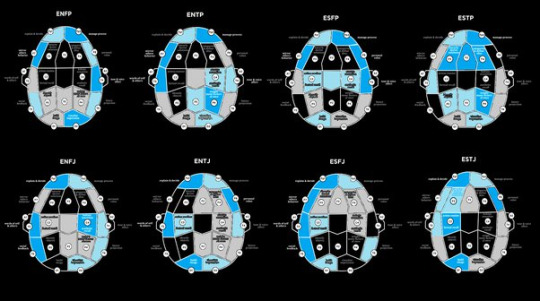
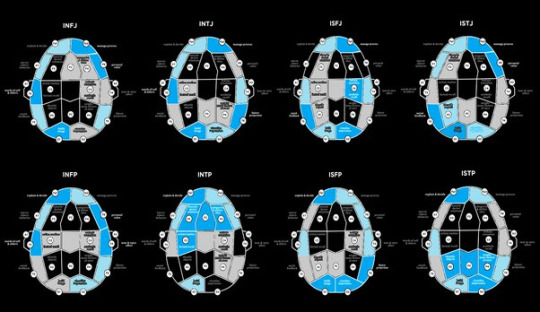
Several times, two or more regions fire together, simultaneously, from once every second up to once hourly. Eg. Whenever somebody listens in a conversation;
Two key auditory regions fire in sync.
The person is keenly attentive to both verbal content (speech, literal meaning) as well as the tone of the voice, never one or the other.
There is a neural connection between both lit regions which will engage in an electrical signal exchange.
Likewise, these charts exemplify and depict precisely which regions in the cranium of each Jungian type lights up most commonly. And because certain types extensively use specific parts of the brain, these parts are likely to be developed more than the rest of the brain.
~ Timothy Emmanuel Lim's answer to Would a highly gifted INTP make more connections in his brain while a similarly gifted INTJ would rely more on the speed of neural connections?
Which essentially translated to; Each cognitive function is tied in with a certain associated region of the brain.
(And like I’ve stated in the aforementioned answer;) Gifted/high IQ individuals tend to be of 1 and/or 2 of these characteristics;
Gifted individuals exhibit an even stronger (and developed) use of their already extensive used regions of the brain, or;
The ability to tap into more regions of the brain than others.
Because gifted individuals have certain regions of the brain, either more developed than others, or have more regions developed overall.
Some gifted individuals tend to be region-centric/focused while others tend to be more generally/overall developed.
So, what does this mean?
By extension; the higher your IQ, the more likely developed your cognitive functions are as a person — which means the more intense/focal you can afford to be in a certain way of thinking.
Let’s draw an analogy:
Life is like a Role-Playing-Game.
Each of us are given a certain amount of points from birth. Some of us are (unfairly) given more, some of us are given less.
When we are born (or creating our character), we are allowed to allocate our bank of points to certain allocated skills to start off with. We also start with certain classes which determine our specializations.
It may look something like this;

(Taken from Ragnarok M: Eternal Love)
As you can see, since the birth of the character, every time this player levels up and grows, the player is allowed to allocate points to whichever skill (s)he chooses, just like in the interface.
You and your friend create a character each.
Let’s say you’re a person who has been given the privilege of starting with extra points. Your friend, however, doesn’t. You start off with 160 points and your friend starts off with 100. Both of you choose different classes.
Both of you allocate your points to 8 different skills accordingly. Your skillsets at the end of allocation looks like this;
Class: Berserker
Str: 45
Agi: 35
Ski: 10
Vit: 25
Int: 5
End: 30
Dex: 5
Luk: 5
In this case, you noted that you wanted to make your class slightly more “balanced”, so you redistributed your points from your Strength level and funneled it into your Agility, pumping it up much higher.
And your friend’s;
Class: Thief
Str: 10
Agi: 30
Ski: 20
Vit: 10
Int: 15
End: 5
Dex: 5
Luk: 5
And as you can see; both you and your friend chose radically different classes, with radically different specializations. An average Thief may outclass an average Berserker in terms of agility, but because you were “blessed” with a stronger starting character, your Berserker’s agility exceeds that of your friend’s agility, which is actually his supposed “strength”.
In this scenario; MBTI types are like your classes, points allocated determine proficiency, and our cognitive functions are our skills.
People who are extensively gifted tend to have their cognitive functions more honed overall compared to the average person.
And like the RPG analogy; some people tend to have better grasp over certain cognitive functions (that aren’t in their defined type) than others (who do).
And when coming across a really intelligent person, they may seem to display stronger feats of certain functions eg. Si, over the typical ISTJ, which this intelligent person may give you the impression that he’s an Si-dominant in that moment. What shocks you however, is how this Si-dominant intelligent person, isn’t actually an Si dominant, but a Ne-dominant; a really gifted ENTP.
Or another gifted person who is somehow, all-rounded in most cognitive functions — hence this person can switch back-and-forth into many different states, which may strike you off as someone who has multiple personalities.
However, no matter how gifted — one will have a go-to default state, like in an RPG where someone has a default class, which still remains true, no matter the deviation or special honing of very specific abilities.
So an average INTP in an EEG may look like this;
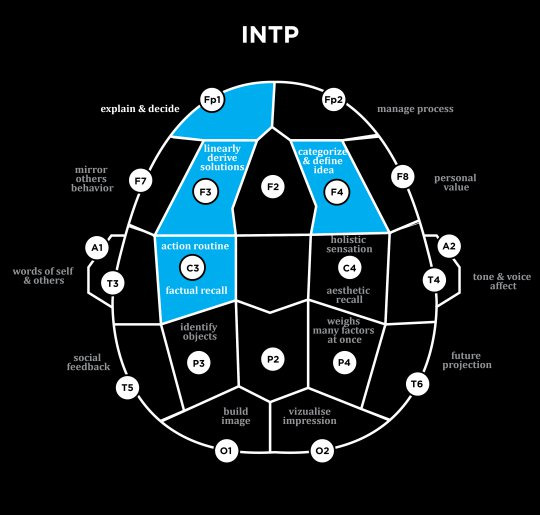
But an extensively gifted INTP’s EEG may look this;
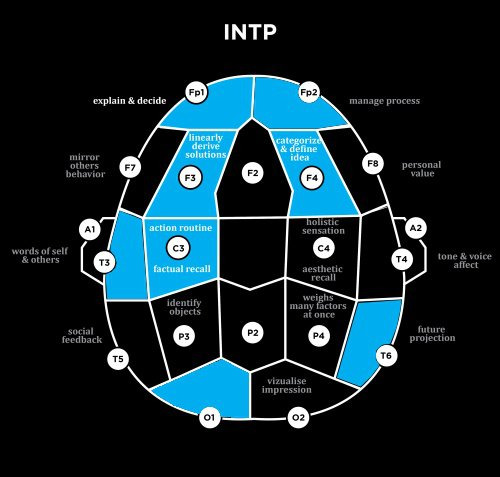
Which upon close inspection, looks like it covers overlapping areas of;
An average INTJ;
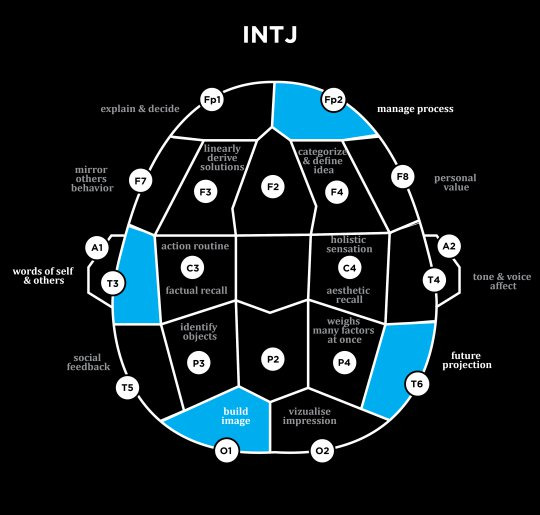
Thus, the gifted INTP will display characteristics that an INTJ often does, too.
This proverbial INTP doesn’t just have a very high Ti and Ne, but probably a very high Ni and Te as well, making him a very hybrid thinker.
So, to answer your question;
Can highly intelligent people have multiple MBTI types?
By definition, no. But by extension of cognitive function use; a highly intelligent person can behave as multiple types.
Because highly intelligent people have extraordinarily developed brains; which certain further-developed regions can easily correspond to certain cognitive functions.
This is why you’ll sometimes find a highly developed Thinker type seem more like a more mature feeler than a less developed Feeler type, etc.
And sometimes, certain high IQ individuals may identify (in Jung, not so much MBTI) as more of an eg. xNxP than a straight INTP or ENFP etc.
Because Jungian theory is the measurement of what kind of cognitive functions you use more; not how much you use them, as compared to others.
Conclusion: Some highly intelligent people can access more thought-processes intensively than others — which is why they may seem like they have more than 1 MBTI type.
Some highly intelligent people may also be more specialized in their cognitive functions and cranial regions, so not all highly intelligent people may be all-rounders per se.
3 notes
·
View notes





























